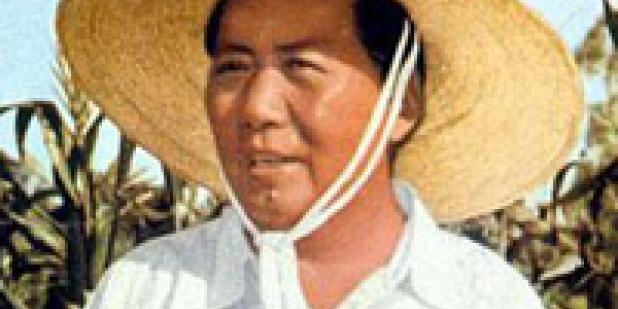Join us for a free one-day workshop for educators at the Japanese American National Museum, hosted by the USC U.S.-China Institute and the National Consortium for Teaching about Asia. This workshop will include a guided tour of the beloved exhibition Common Ground: The Heart of Community, slated to close permanently in January 2025. Following the tour, learn strategies for engaging students in the primary source artifacts, images, and documents found in JANM’s vast collection and discover classroom-ready resources to support teaching and learning about the Japanese American experience.
Mao's Great Famine
Frank Dikötter will discuss his book, "Mao's Great Famine", at the University of San Francisco.
Where

“Between 1958 and 1962, China descended into hell. Mao Zedong threw his country into a frenzy with the Great Leap Forward, an attempt to catch up to and overtake Britain in less than 15 years. The experiment ended in the greatest catastrophe the country had ever known, destroying tens of millions of lives."
So opens Frank Dikötter's riveting chronicle of an era in Chinese history much speculated about but never before fully documented because access to Communist Party archives has long been restricted. A new archive law has opened up thousands of central and provincial documents that fundamentally change the way one can study the Maoist era. Dikötter makes clear, as nobody has before, that far from being the program that would lift the country among the world's superpowers and prove the power of Communism, as Mao imagined, the Great Leap Forward transformed the country in the other direction. It became not only of "one of the most deadly mass killings of human history"—at least 45 million people were worked, starved, or beaten to death--but also "the greatest demolition of real estate in human history," as up to one-third of all housing was turned into rubble.
Frank Dikötter, Chair Professor of Humanities at Hong Kong University, has written the authoritative account of how Mao's revolutionary romanticism combined with disastrous weather and official complicity to cost more than 45 million Chinese people their lives. Dikötter's work links up for the first time what happened in the corridors of power with the everyday experiences of ordinary people, giving voice to the dead and disenfranchised.
Presented by Asia Society Northern California and the Japan Policy Research Institute at University of San Francisco Center for the Pacific Rim.
Co-sponsored by the University of San Francisco (USF) Asian Studies Program, USF Chinese Students and Scholars Association, USF History Department, chinadialogue, and the Fromm Institute for Lifelong Learning.
Featured Articles
Please join us for the Grad Mixer! Hosted by USC Annenberg Office of International Affairs, Enjoy food, drink and conversation with fellow students across USC Annenberg. Graduate students from any field are welcome to join, so it is a great opportunity to meet fellow students with IR/foreign policy-related research topics and interests.
RSVP link: https://forms.gle/1zer188RE9dCS6Ho6
Events
Hosted by USC Annenberg Office of International Affairs, enjoy food, drink and conversation with fellow international students.
Join us for an in-person conversation on Thursday, November 7th at 4pm with author David M. Lampton as he discusses his new book, Living U.S.-China Relations: From Cold War to Cold War. The book examines the history of U.S.-China relations across eight U.S. presidential administrations.




